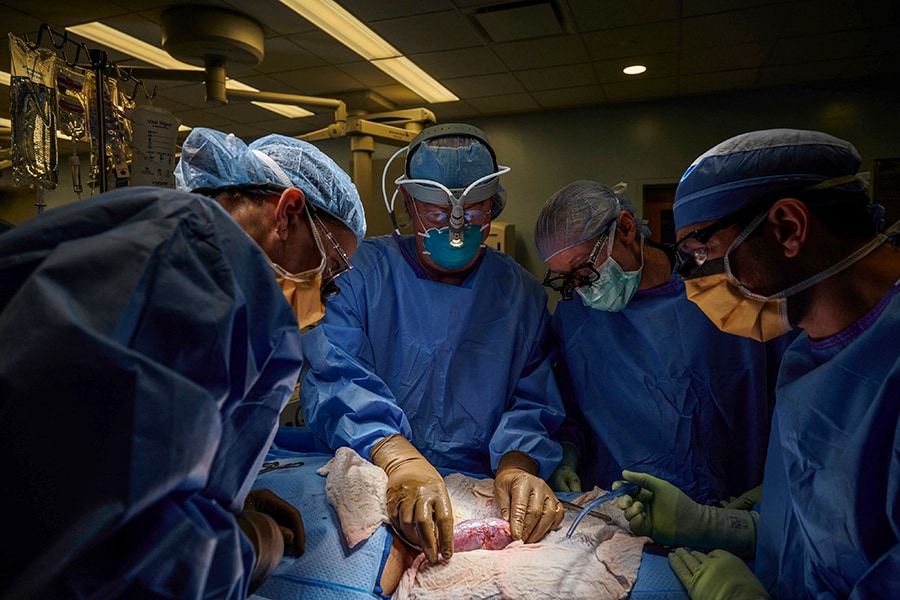
In a first, surgeons attach a pig kidney to a human—and it works
The transplanted kidney was obtained from a pig genetically engineered to grow an organ unlikely to be rejected by the human body
 A photo provided by NYU Langone Health shows a surgical team at the hospital in New York examining a pig kidney attached to the body of a deceased recipient for any signs of rejection in September 2021. From left are Drs. Zoe A. Stewart-Lewis, Robert A. Montgomery, Bonnie E. Lonze and Jeffrey Stern. Image: Joe Carrotta/NYU Langone Health via The New York Times
A photo provided by NYU Langone Health shows a surgical team at the hospital in New York examining a pig kidney attached to the body of a deceased recipient for any signs of rejection in September 2021. From left are Drs. Zoe A. Stewart-Lewis, Robert A. Montgomery, Bonnie E. Lonze and Jeffrey Stern. Image: Joe Carrotta/NYU Langone Health via The New York Times
Surgeons in New York have successfully attached a kidney grown in a genetically altered pig to a human patient and found that the organ worked normally, a scientific breakthrough that one day may yield a vast new supply of organs for severely ill patients. Researchers have long sought to grow organs in pigs that are suitable for transplantation into humans. Technologies like cloning and genetic engineering have brought that vision closer to reality in recent years, but testing these experimental organs in humans has presented daunting ethical questions.
So surgeons at NYU Langone Health took an astonishing step: With the family’s consent, they attached the pig’s kidney to a brain dead patient who was kept alive on a ventilator, and then followed the body’s response while taking measures of the kidney’s function. It is the first operation of its kind.
The researchers tracked the results for just 54 hours, and many questions remained to be answered about the long-term consequences of such an operation. The procedure will not be available to patients any time soon, as there are significant medical and regulatory hurdles to overcome.
Still, experts in the field hailed the surgery as a milestone.
“This is a huge breakthrough,” said Dr. Dorry Segev, a professor of transplant surgery at Johns Hopkins School of Medicine who was not involved in the research. “It’s a big, big deal.”
©2019 New York Times News Service






